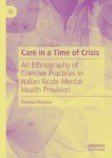Search
Search Results
-
Activation levels of plausible alternatives in conversational negation
Negation is often used to contradict or correct (e.g. There is no dog here. ). While rejecting some state of affairs that is presumed to hold for the...

-
Intergenerational concern relates to constructive co** and emotional reactions to climate change via increased legacy concerns and environmental cognitive alternatives
As the threat of climate change looms large, and we experience first-hand the impacts of rapid global warming, researchers and clinicians emphasize...

-
Adolescents with Few Friend Alternatives are Particularly Susceptible to Influence from Friends
Friend influence in adolescence is well-documented, but the characteristics that contribute to individual differences in susceptibility to influence...

-
Effect of cognitive load and working memory capacity on the efficiency of discovering better alternatives: A survival analysis
Why do humans attempt to discover better alternatives to solve a problem even when they know the way to solve it? This question is related to the...

-
Social Work as Social Justice: Supporting the Autonomy of Students with Disabilities Through Alternatives to Guardianship
Poor postschool outcomes historically await students with disabilities upon graduation. For more than three decades, professionals have responded to...

-
A Necessary Evil? Alternatives to Coercive Interventions
This chapter describes the ethical dilemmas concerning the use of coercive measures in mental healthcare settings, as well as clinical issues raised...
-
CNN-based search model fails to account for human attention guidance by simple visual features
Recently, Zhang et al. ( Nature communications, 9 (1), 3730,
2018 ) proposed an interesting model of attention guidance that uses visual features learnt...
-
Broadening of attention dilates the pupil
Inconclusive evidence suggests that the pupil is more dilated when the breadth of attention is broad compared to narrow. To further investigate this...

-
The effects of working memory training on attention deficit, adaptive and non-adaptive cognitive emotion regulation of Chinese children with Attention Deficit/Hyperactivity Disorder (ADHD)
BackgroundAttention Deficit/Hyperactivity Disorder (ADHD) poses cognitive and emotional challenges for Chinese children. This study addresses the...
-
The Architecture of Object-Based Attention
The allocation of attention to objects raises several intriguing questions: What are objects, how does attention access them, what anatomical regions...

-
Neuropsychological Interventions for Attention in Children and Adolescents
The chapter discusses neuropsychological interventions to improve attention in children and adolescents. These interventions involve an integrated...
-
Considering College Alternatives
Many alternatives to four-year college may prove optimal for students with high-functioning autism (HFA). Alternative options include but are not...
-
Does preparation help to switch auditory attention between simultaneous voices: Effects of switch probability and prevalence of conflict
Switching auditory attention to one of two (or more) simultaneous voices incurs a substantial performance overhead. Whether/when this voice ‘switch...

-
Alternatives or syntactic negation? Adults’ and children’s preferences for constructing counterfactual possibilities
Reasoning with counterfactuals such as “if his sister had entered silently, the child would have been awake”, requires considering what is...

-
Towards Decolonizing Diagnosis: a Critical Review and Suggested Alternatives
In this article, the authors present the scope and nature of a global movement to modify or replace the American Psychiatric Association’s Diagnostic...
-
Spatial attention in mental arithmetic: A literature review and meta-analysis
We review the evidence for the conceptual association between arithmetic and space and quantify the effect size in meta-analyses. We focus on three...

-
Internal attention is the only retroactive mechanism for controlling precision in working memory
Recent research has suggested that humans can assert control over the precision of working memory (WM) items. However, the mechanisms that enable...

-
Are neuronal mechanisms of attention universal across human sensory and motor brain maps?
One's experience of shifting attention from the color to the smell to the act of picking a flower seems like a unitary process applied, at will, to...

-
Impact of relative and absolute values on orienting attention in time
Reward has been known to render the reward-associated stimulus more salient to block effective attentional orienting in space. However, whether and...

-
Loss aversion in the control of attention
Loss aversion is a psychological bias where an increase in loss is perceived as being larger than an equivalent increase in gain. In the present...

